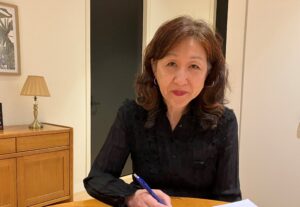
Jenan Taylor
1 June 2022
Christian intercultural workers have been warned that ignoring their cultural blind spots might pose a risk to their mission.
Faith leaders have urged people working with other cultures to demonstrate more humility, and to be aware of the Western attitudes they take into communities.
Mission training bodies such as St Andrew’s Hall say they are putting increasing emphasis on making sure trainees don’t take “Western baggage” into the field.
Australian Indigenous Ministries missionaries Sue and Richard Davies say they have witnessed many people new to Indigenous communities commit serious slip-ups and lose their respect and confidence.
The Davies live in Cootamundra but have worked in outback Australia for more than 35 years.
In that time, the couple has travelled all over the Northern Territory, teaching about the Bible and working with various church leaders.
They have had many successes, but their journey has also brought challenges.
Read more: Repent of colonialism, missionary conference told
Mrs Davies can recall the consternation that arose among some of the men in an Indigenous community, when she decided to breastfeed her baby in public, even discreetly.
Mr Davies can remember complimenting a parishioner on the evening dress she wore to church one Sunday morning, only to be chided by an Aboriginal elder for looking at the younger woman “with the wrong eyes”.
The elder considered Mr Davies’ attitude to be wrong.
The couple are more focused on translation work these days. But from time to time they help teachers and health professionals new to the communities to be more culturally aware and to adjust more smoothly, Mr Davies said.
The couple believes this is necessary because they have witnessed many of those professionals, and faith workers blunder, and then lose the respect and confidence of Indigenous people.
“They ask the wrong questions, ask too many questions, ask questions for which there are no answers, and often make comments when they shouldn’t,” Mr Davies said.
Mrs Davies said it was vital that workers were better prepared to work respectfully and sensitively.
She said during the intervention in the Northern Territory, they’d witnessed government representatives descend on communities using complicated language riddled with acronyms.
“Even the girl who was interpreting didn’t know what the speakers were talking about. It was such a waste of money,” she said. “How could they not know they were not communicating?”
She said people who wanted to work in Indigenous communities needed to learn to slow down and observe carefully if they wanted to be effective in the local cultures.
“You have to come as a learner,” Mrs Davies said. “We’ve had groups come up here who say they want to hit the ground running, and we’ve said, ‘No, you come as a learner. You’ve got nothing to say until you’ve learned because otherwise you are at risk of being so offensive.’”
Read more: Why the world needs to hear God’s plan now: Speaker
At St Andrew’s Hall, a school for the Church Missionary Society, interdenominational gospel workers are trained to work in places like Japan and Kenya and among Indigenous Australian communities.
The school’s director of training and development Dr David Williams said St Andrew’s equipped students to acknowledge their own blind spots and the western lens through which they viewed other cultures.
Dr Williams said that in the last few years the curriculum had become more focused on ensuring that Anglo-Australian or western students were aware of the power imbalances they often took into their fieldwork.
He said the school wanted gospel workers to recognise the degree to which their world view had been shaped by individualism, egalitarianism and assumptions around freedom and agency.
He said it strengthened them to approach their work with a “high degree of epistemic humility.”
That also enabled them to develop alliances with local faith workers, and to level the playing field between them, Dr Williams said.
The school’s strong emphasis on longer term mission, meant workers were encouraged to learn the language of the hearer, alongside considerations of giving away power to balance the relationship, he said.
Dr Williams said that approach could slow the pace of their work among other cultures and be frustrating for gospel workers, initially.
However, he was confident that over time they would see how slowing down could help improve their cultural fitness and help them avoid unsustainable practices.
The approach parallels some of the humanitarian sector’s work with communities around the globe.
Anglican Overseas Aid quality and compliance program manager Belinda Lauria said establishing more balanced relationships with local churches and faith agencies in places such as the Solomon Islands and Tonga has helped the organisation build robust working structures.
Ms Lauria said ensuring those actors took the reins in decision-making was the most relevant way to develop community development initiatives.
She said it had helped Anglican Overseas Aid support communities in Vanuatu to drive their recovery efforts during emergency crises like tropical cyclone Harold.
But there was still a lot of work to do in the space, Ms Lauria said.
“Because a lot of places get funded by Australia and New Zealand, there’s still a need to ensure we’re not prioritising our own interests and that we are still listening and actually are allowing decisions to be made by local actors themselves,” Ms Lauria said.
“There’s a lot of talk, but the actions don’t always match the talk and the talk is done by us in the western countries.”
She said people needed to constantly be reflective about their work.
“Change takes time. It’s not a straight line,” Ms Lauria said.
For more faith news, follow The Melbourne Anglican on Facebook, Twitter, or subscribe to our weekly emails.







